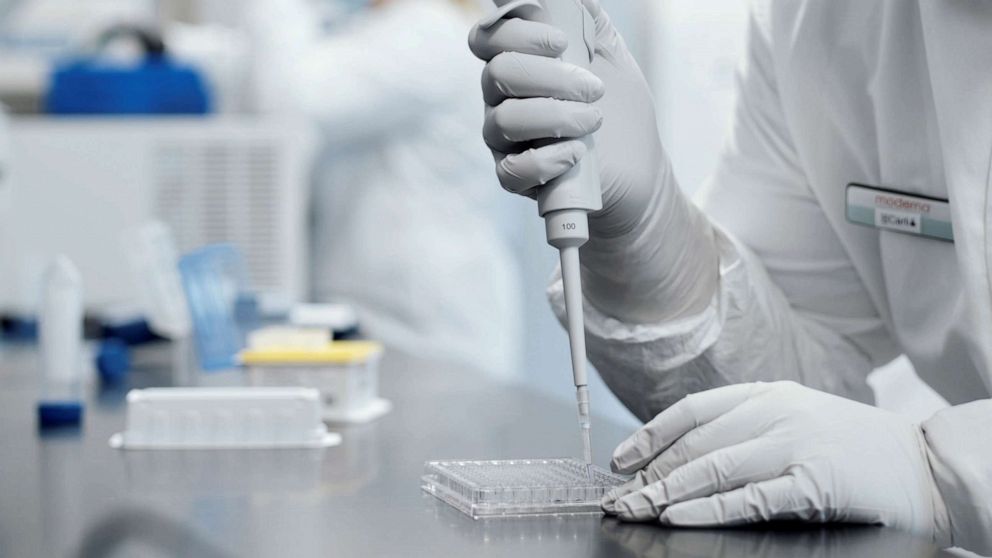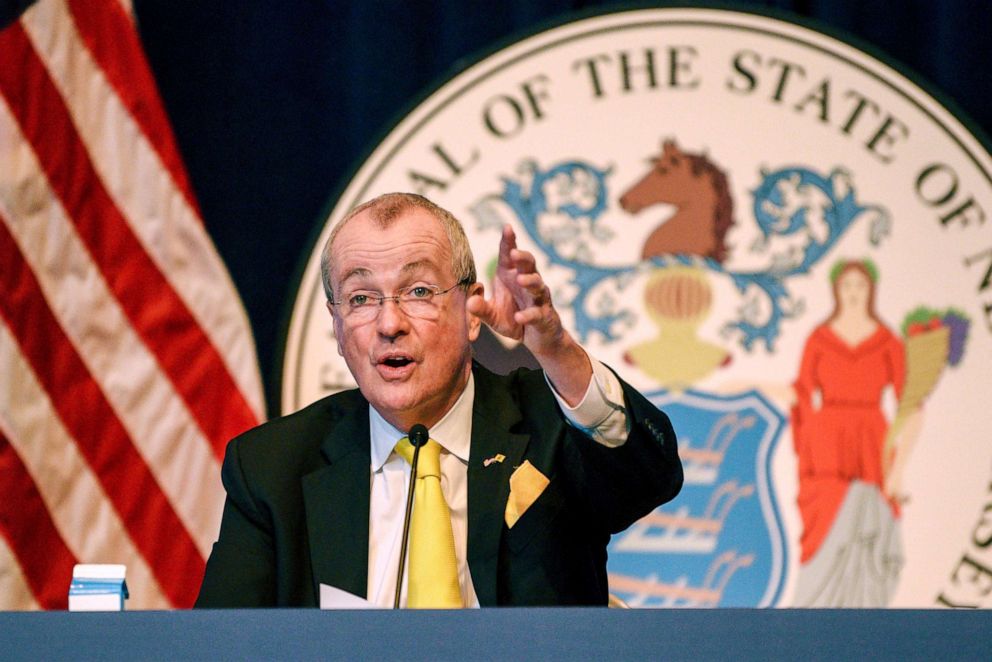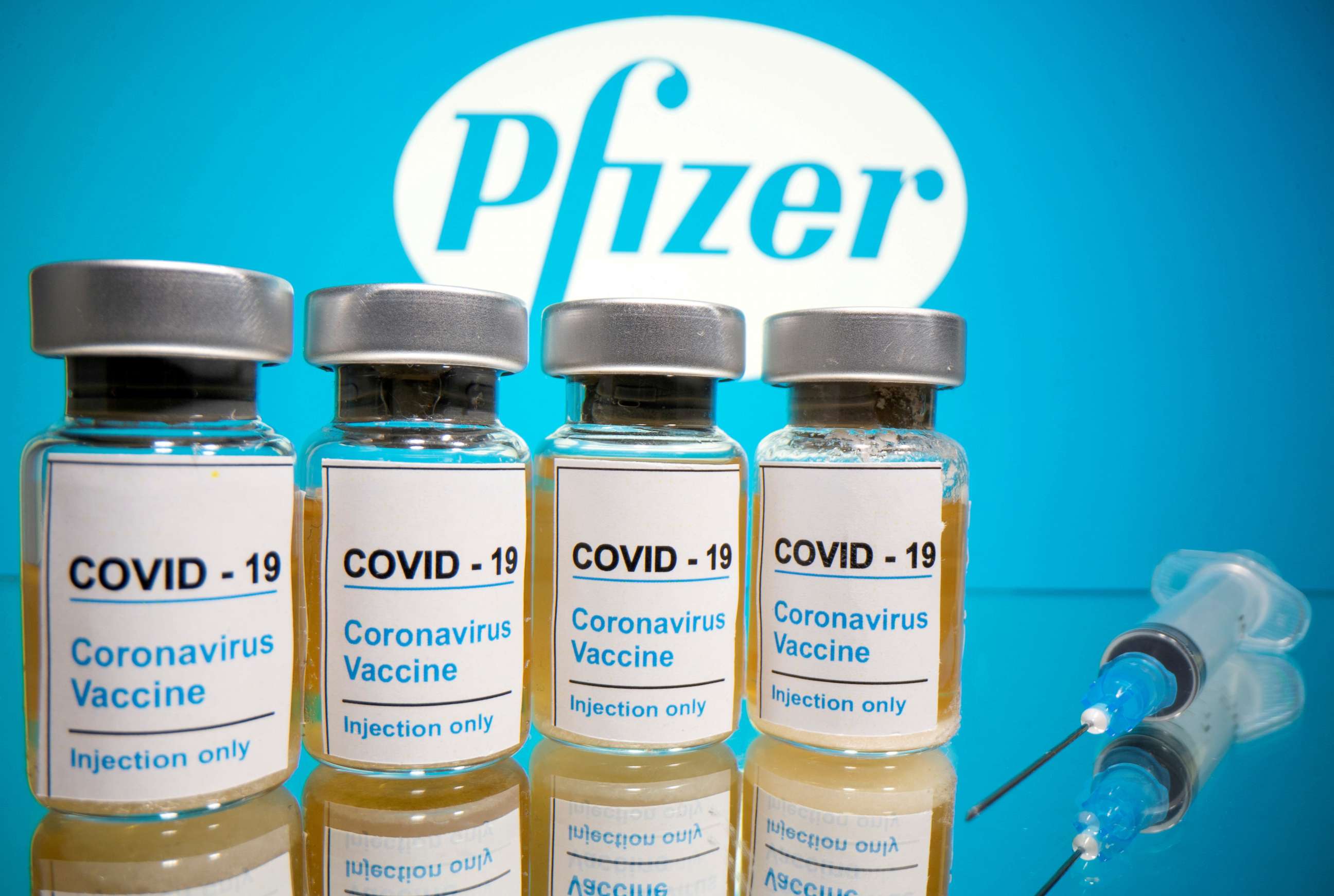High hopes for a COVID-19 vaccine by the end of the year, but states say they need more money for distribution
Pfizer's and Moderna's vaccines have shown promising early results.
While recent announcements from Pfizer and Moderna have raised hopes about a possible COVID-19 vaccine, several state officials have said they still need federal government money to ensure they can distribute the vaccine when it is released.
States say they will need more money from the federal government to hire staff to administer vaccines, develop data systems to track doses and communicate the importance of getting vaccinated.
At least a dozen states told ABC News that they will likely need additional funding or are awaiting additional funding. Other states suggested they are still deciding whether they will need additional funding.
Trish Riley, executive director of the National Academy for State Health Policy, said she wants to avoid a repeat of the problems the country faced early in the pandemic, when states were competing for essential resources like personal protective equipment and ventilators.
"That's the wake-up-at-night worry," Riley told ABC News. "States can't do this alone."
According to a letter to Congressional leaders from groups that represent local health officials and immunization managers, states may need as much as $8.4 billion in extra funding.
States have received $340 million for COVID-19 and flu vaccine planning efforts and are expected to receive $140 million more in December to design vaccine distribution plans and start updating the necessary information systems, but multiple states said they will need more federal money and still don't know how much will be available.
White House spokesman Michael Bars said states will not be responsible for the majority of expenses because the federal government has paid for doses and administration costs will be covered by private insurers, Medicare, and Medicaid. Shipment and storage will be covered by CDC's contracts to distribute the vaccine and through partnerships with private pharmacies like CVS and Walgreens to distribute vaccine doses to participating nursing homes and administer vaccines when one is made available to the general public.
"The Administration continues working hand-in-hand with our state and local partners and remain intensely focused on helping Americans communities prepare for and respond to health threats while ensuring they have the tools and resources to better treat patients and protect the most vulnerable. We are sparing no effort or expense to save millions of lives," he said in a statement Wednesday.
In response to concerns raised by the National Governors Association, Operation Warp Speed has said they are in the process of planning to make additional funding and resources available to support vaccine operations, information systems, and communications campaigns.

But many state officials say they are still concerned it won't be enough.
New Jersey Gov. Phil Murphy expressed concerns about the lack of federal government support during a press briefing on Monday. "As good as the distribution plan may be, we need the feds," he said.
"It is essential that we get federal support, and that includes money," he added.
Mississippi's health officer, Dr. Thomas Dobbs, said during a press briefing on Tuesday that the state "will certainly need additional funding," emphasizing that the vaccine distribution effort is expected to be a massive operation that will not be possible without federal support.
Kentucky Health and Family Services spokesperson Susan Dunlap echoed Dobbs' concern and said, "Once CARES Act funding expires after Dec. 30, funding will be insufficient."
"It is crucial that Congress provide additional financial support to states to successfully distribute COVID-19 vaccines," Dunlap said.
A North Carolina Department of Health and Human Services spokesperson told ABC News that the state has been allocated $5.9 million from the federal government for vaccine response so far and anticipates another $3-4 million in additional funds; still, they believe they will need approximately $30 million for its vaccination management and distribution efforts.
Officials from several other states -- including Georgia, Colorado, Idaho, Oregon, Maryland and Minnesota -- have told ABC News that they're expecting to receive additional financial support from the federal government in the coming days and weeks, but are still in the dark about how much more they will be getting.

Minnesota Health Department spokesperson Doug Schultz said additional funding from the federal government is needed to ensure the successful distribution of the COVID-19 vaccine to rural parts of the state.
Claire Hannan, executive director of the Association of Immunization Managers, said states need funding immediately. She said her biggest fear is that states won't have the money to hire and train nurses and other staff to administer vaccinations when a vaccine becomes available.
"I do fear that the vaccine's going to get shipped, we're going to be able to plan out the logistics, but we're not going to be able to have enough manpower for vaccinating and we're not going to have robust community engagement," she told ABC News.
She said it's unclear exactly how much money states will need for administering vaccines because it will depend how many people are vaccinated by private health care providers or through federal partnerships with companies like CVS and Walgreens; regardless, she said states need money to prepare and track that information and they should have access to federal funding for as long as they need.
Hannan said one of the concerns is that states need to train health care providers on specific information regarding the COVID-19 vaccine, which will likely be distributed quickly after the Food and Drug Administration signs off. Health care workers need to know how to store the vaccine and administer it; they also need to know the conditions for who can receive it under emergency authorization and must be able to communicate to patients about its possible side effects.
"The vaccine is so complicated that we don't want to just send a flyer in the box," Hannan said.
States also need money to conduct follow-up monitoring, which includes reminding people to get their second dose of the vaccine.
Experts say it will also take more resources for states to reach the populations that have been disproportionately impacted by COVID-19, this includes rural areas and communities that, historically, have been more reluctant to trust vaccines.
Centers for Disease Control and Prevention Director Robert Redfield warned Congress about the need for more funding and a COVID-19 stimulus bill back in September. He said the agency needed between $5.5 and $6 billion to help states distribute a potential vaccine, and even implied that he would be the one blamed if vaccine distribution plans failed.

Despite Redfield's warning, stimulus bill talks aren't going anywhere at the moment. Congress is currently more focused on an omnibus spending bill to prevent a government shutdown when the current funding expires on Dec. 11.
Democrats have included $4 billion in their package that would go to vaccine distribution for both a COVID-19 vaccine and the flu, but there is no agreement about whether vaccine funding will be part of the final bill.
Riley said state economies and budgets are already struggling from the economic downturn caused by the pandemic, and next year they could face more problems after they've exhausted emergency reserves of money. But she said getting a vaccine out efficiently will require federal leadership and money.
U.S. Department of Health and Human Services Secretary Alex Azar assured governors they would not be responsible for the expenses of the vaccine program on a call Monday, because the federal government will pay for doses of the vaccine and will reimburse providers for the cost of administering and transporting the shipments.
"What we need for you are the plans to help allocate and deliver vaccines to the appropriate places in ways that makes sense for your state and community. We're working to make this planning as simple as possible," he said on the call.
But Riley said that while federal leadership and a national strategy will help, without more funding the public health system will struggle to get the vaccine out.
"You can't underfund a system and then be surprised when it doesn't have capacity," she said.
ABC News' Laura Romero, Halley Frager, Arielle Mitropoulos and Mariam Khan contributed to this report.




